Slugs, snails and insects such as aphids, have just one thing on their minds – eating your crops! It makes sense to get rid of these pests, but using chemicals is often more trouble than its worth. Natural pest control methods can effectively manage unwanted visitors without the use of harmful chemicals. From attracting beneficial insects to implementing companion planting, there are numerous strategies that can help you maintain a healthy and thriving garden.
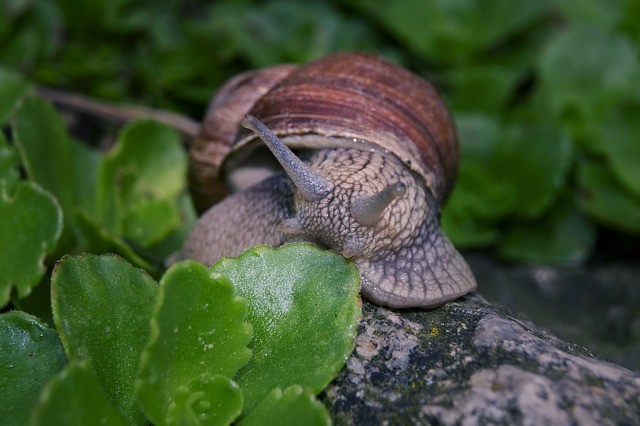
Let’s delve into the world of natural pest control and uncover the secrets to a pest-free garden!
Why is Chemical Pest Control Bad for the Garden?
Chemical pest control may seem like a quick fix for eliminating garden pests, but it comes with its fair share of drawbacks.
Firstly, the chemicals used in pesticides can be harmful to not just the pests, but also beneficial insects, birds, and other wildlife that play vital roles in maintaining a balanced ecosystem. These chemicals can seep into the soil, waterways, and even into the food we consume, posing health risks to both humans and animals alike.
Over time, pests can develop resistance to chemical pesticides, necessitating stronger and potentially more toxic solutions. Because chemical pest control disrupts the natural balance in the garden, it can lead to a decline in biodiversity and the loss of natural pest control mechanisms. Given these reasons, it’s clear that relying on chemical pest control methods can have long-lasting negative impacts on both the environment and our well-being.
So how can you stop pests in the veggie garden without using chemicals? Luckily there are plenty of ways to do so. Here are our tips for beating pests the natural way.
Attract Beneficial Insects
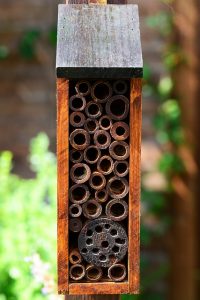
One of the most powerful ways to control garden pests naturally is to attract beneficial insects, such as ladybugs, lacewings, and parasitic wasps, which can naturally prey on garden pests. To do this, you can plant flowers like marigolds, cosmos, and daisies, along with herbs like dill and parsley, which act as enticing habitats for these beneficial insects.
Create a habitat for beneficial insects that naturally prey on pests. Insects such as spiders, ladybirds and lacewings will eat aphids, so inviting them to take up residence will reduce damage to your crops. Build a bug hotel using scrap materials and place it near to your crops.
Create a Hedgehog Friendly Garden
Creating a hedgehog friendly garden not only provides a safe haven for these delightful creatures but also helps naturally control pests. Hedgehogs love feeding on pests like slugs, snails, and insects. Ensure there is a shallow dish of fresh water available for them, especially during dry spells. You can also leave out hedgehog-friendly food such as wet cat food or specialised hedgehog food.
Hedgehogs roam freely at night, so ensure there are openings in fences or walls for them to come and go. A small hole of around 13 cm (5 inches) in diameter should suffice, allowing hedgehogs to explore your garden in search of pests. Provide a shelter, such as an old wooden box, that hedgehogs can hide in during the day.
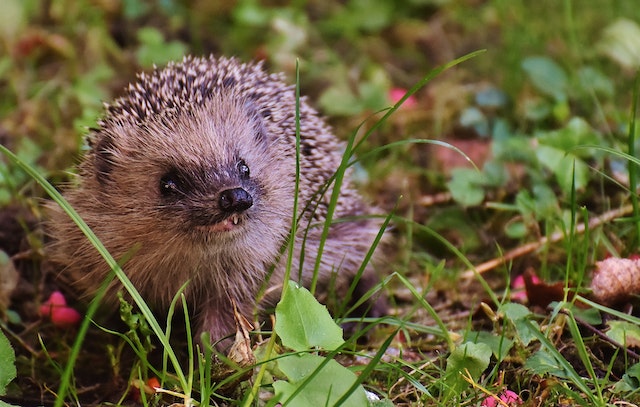
Promote biodiversity in your garden by planting native flowers, shrubs, and trees. This attracts a wide range of insects, which act as a natural food source for hedgehogs. Avoid using pesticides that can harm both hedgehogs and their food supply.
Remove hazards that could harm hedgehogs, such as open drains or deep ponds. Hedgehogs are great swimmers, but they can struggle to climb out of steep-sided ponds.
By creating a hedgehog-friendly garden, you not only support these adorable creatures but also help to naturally control pests. It’s a win-win situation that promotes a healthy and thriving garden ecosystem.
Homemade Pest Control
Homemade remedies can also play a role in natural pest control, and are a lot cheaper than buying chemical versions. For example, a mixture of water, soap, and oil can be sprayed on plants to suffocate pests like aphids and mites.
Another option is using diatomaceous earth. This is a substance made from the fossilised remains of aquatic organisms, which can have a desiccating effect on pests. Other barriers, such as coffee grounds and eggshell will also deter slugs and snails to some extent.
If you live near the coast, you can make use of a plentiful resource. Seaweed is fabulous as a natural pest control. It’s salty and repels a lot of insects and invertebrates. Collect washed up seaweed and sse it as a mulch around your plants to protect against garden pests.
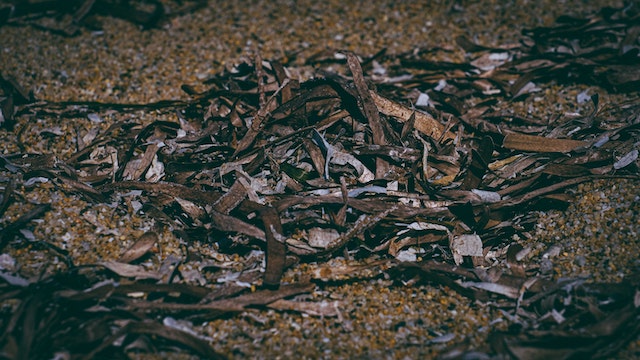
Companion Planting
Companion planting is another valuable technique for natural pest control in the vegetable garden. This involves planting certain combinations of plants together to deter pests. For instance, planting aromatic herbs like basil or rosemary alongside vegetables can repel pests.
Planting strong smelling alliums next to more vulnerable plants will discourage some flying insects from settling down to feed on your crops. For example, you could alternate rows of carrots and onions to deter carrot fly. Additionally, using physical barriers like row covers or netting can prevent pests from accessing your plants while still allowing light and air to pass through.
Good Garden Practices
Implementing good garden practices is crucial, including proper watering and fertilisation techniques, as stressed plants are more susceptible to pest damage. Regularly inspecting your plants for signs of pests and promptly removing any infested or diseased foliage can also help contain outbreaks.
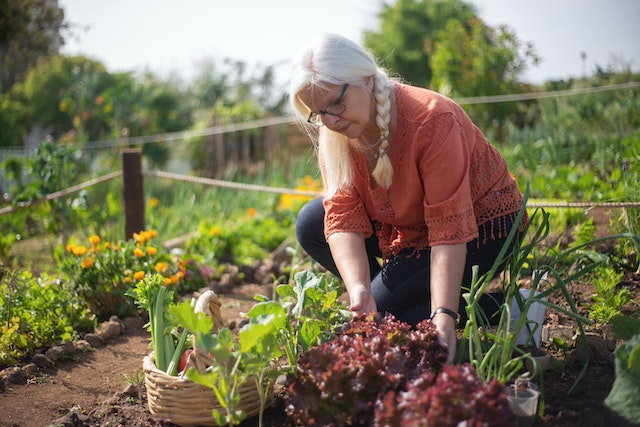
The Takeaway on Natural Pest Control in the Vegetable Garden
Remember, natural pest control methods may take some time and experimentation to find the right combination for your specific garden. However, by using these strategies, you can create a flourishing garden that thrives while keeping pesky pests at bay.
Remember, it is difficult to get rid of every pest in the garden, and there is no chemical pesticide that will do that either. Going for the natural pest control options and working together with nature, rather than against it, creates a healthier garden. Once you have the balance right, the naturally healthy garden has better soil condition, a harmonious ecosystem and is more productive.
Do you use natural pest control in the vegetable garden? Share your tips here!
